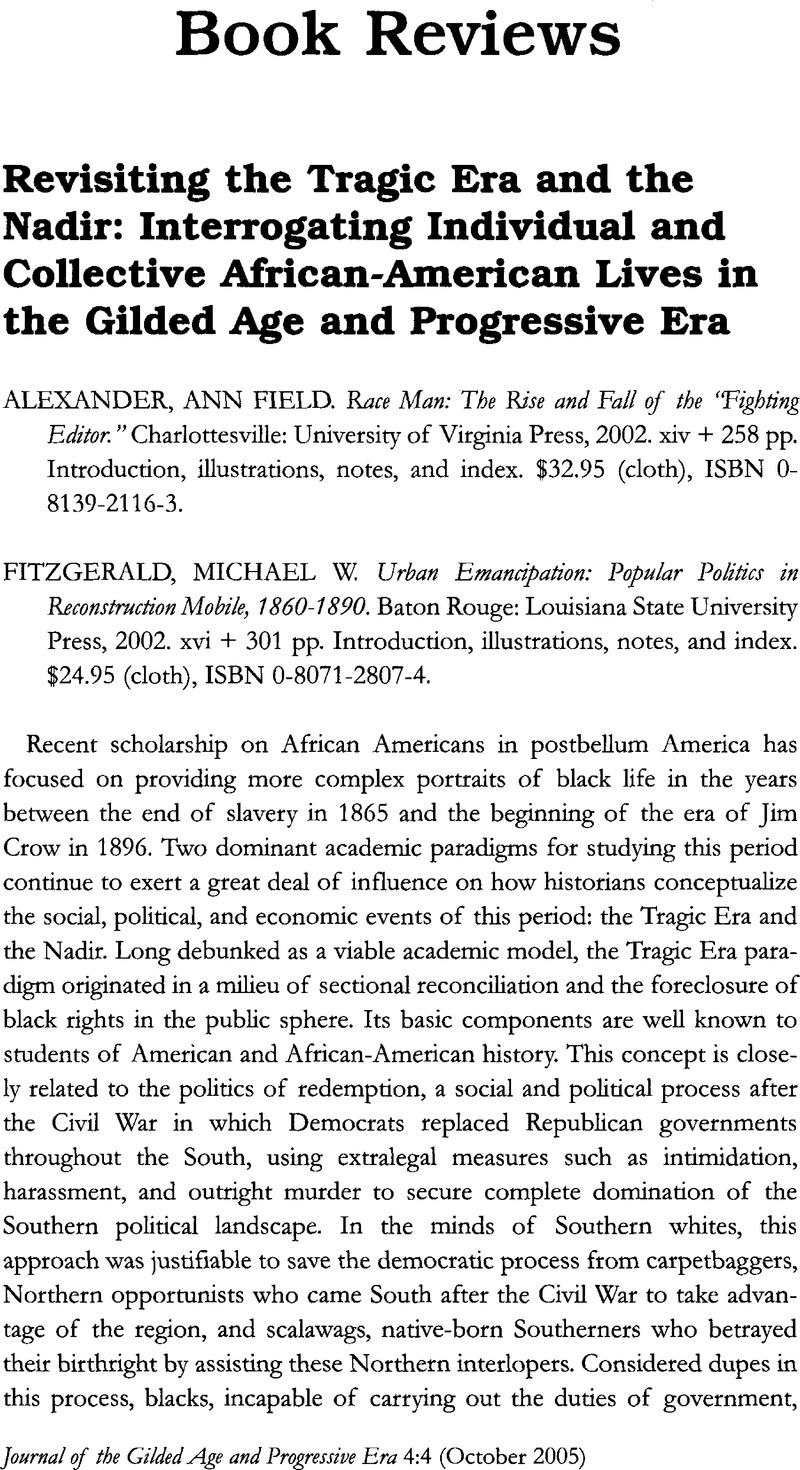No CrossRef data available.
Article contents
Revisiting the Tragic Era and the Nadir: Interrogating Individual and Collective African-American Lives in the Gilded Age and Progressive Era - Ann Field Alexander. Race Man: The Rise and Fall of the “Fighting Editor.” Charlottesville: University of Virginia Press, 2002. xiv + 258 pp. Introduction, illustrations, notes, and index. $32·95 (cloth), ISBN 0-8139-2116-3. - Michael W Fitzgerald. Urban Emancipation: Popular Politics in Reconstruction Mobile, 1860-1890. Baton Rouge: Louisiana State University Press, 2002. xvi + 301 pp. Introduction, illustrations, notes, and index. $24·95 (cloth), ISBN 0-8071-2807-4.
Review products
Published online by Cambridge University Press: 08 November 2010
Abstract

- Type
- Book Reviews
- Information
- The Journal of the Gilded Age and Progressive Era , Volume 4 , Issue 4 , October 2005 , pp. 409 - 415
- Copyright
- Copyright © Society for Historians of the Gilded Age and Progressive Era 2005
References
1 The Tragic Era interpretation of Reconstruction appears in many places, including Dunning, William A., Essays on the Civil War and Reconstruction and Related Topics (New York, 1904)Google Scholar.
2 Logan, Rayford W., The Betrayal of the Negro (repr. New York, 1965).Google Scholar
3 Gilmore, Glenda, Gender and jim Crow: Women and the Politics of White Supremacy in North Carolina, 1896-1920 (Chapel Hill, 1996)Google Scholar; Moore, Jacqueline, Leading the Race: The Transformation of the Black Elite in the Nation's Capital, 1880-1920 (Charlottesville, 1999)Google Scholar; Shaw, Stephanie, What a Woman Ought to Do and Ought to Be: Black Professional Women in the Jim Crow South (Chicago, 1996); andCrossRefGoogle ScholarBlight, David, Race and Reunion: the Civil War in American Memory (Cambridge, Mass., 2001)Google Scholar.
4 Gavins, Raymond, The Perils and Prospects of Southern Black Leadership, Gordon Blaine Hancock, 1884-1970 (Durham, N.C., 1977).Google Scholar
5 Doyle, Don, New Men, New Cities: Atlanta, Nashville, Charleston and Mobile, 1860-1910 (Chapel Hill, 1990).Google Scholar


